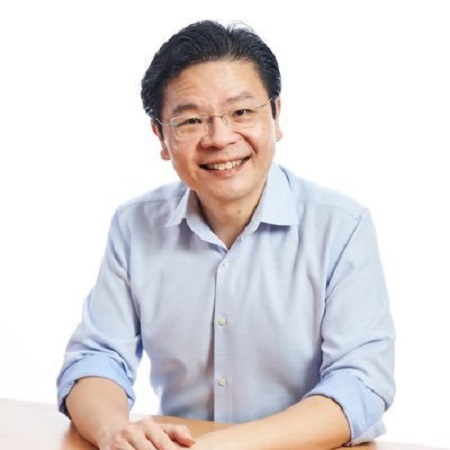Singapore's Minister for Finance, Lawrence Wong, is trending following his address on racial issues in the country. He spoke on "Multiracialism and Faultlines" jointly organised by the Institute of Policy Studies (IPS) and the S Rajaratnam School of International Studies (RSIS). Minister addressed various issues including the history of Singapore's multi-racial society.
One of the issues he addressed was "Chinese Privilege" in Singapore. Earlier, there were reports stating that Chinese parliamentarians were enjoying a special privilege in Singapore. Lawrence Wong explained the situation by giving details about Chinese Singaporeans. Here is an excerpt from Wong's speech.

Chinese Community in Singapore
"In this regard, it is important to realize that the Chinese community in Singapore is not monolithic. Sometimes, people talk about "Chinese privilege" in Singapore. There may well be biases or blind spots that the Chinese community should become aware of and to rectify.
"But please understand that we still have a whole generation of Chinese Singaporeans who are more comfortable in Chinese than English, and who consider themselves at a disadvantage in an English-speaking world. They feel that they have already given up much to bring about a multi-racial society: Chinese-language schools, Nanyang University, dialects, and so on.
"What do you mean by 'Chinese privilege'?" they will ask, for they do not feel privileged at all. Naturally, many of them would object to being so characterized."
The issue became a subject of discussion at the national level after an article Chinese Privilege in Politics: A case of Singapore's ruling elite was published in the online publication, Asian Ethnicity in December 2019. The article mentioned that Chinese privilege did exist in Singapore politics and was perpetuated by the political hegemony of the long-ruling People's Action Party (PAP). The article also said that the privilege could be seen in the advantages and benefits enjoyed by ethnic Chinese parliamentarians, while the same was not open to ethnic minorities. "Chinese privilege is therefore not only evident but, as a concept, useful in understanding politics in Singapore," the article read.
PAP's Action Plan
Reacting to the issue, Wong assured that his party [PAP] will engage widely and update its policies on race. "This brings me to my second point, which is that we must continue with our approach of mutual accommodation, trust and compromise," he said.
"Let me be clear: I am not saying that we should refrain from voicing our unhappiness, or that minority Singaporeans should pipe down about the prejudices they experience. On the contrary, we should be upfront and honest about the racialised experiences various groups feel, and deal squarely with them," said Wong.
"Ultimately, any change must expand our common space, and strengthen our racial harmony, while allowing each community as much room as possible to go about its way of life," said Wong concluding the speech.








